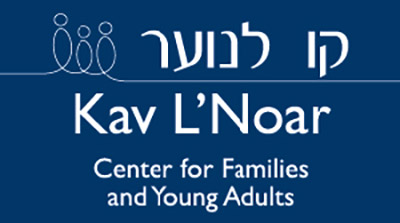
On March 9, 2018, just a few days after Purim, I will have the privilege to run in the Jerusalem half marathon to help benefit a wonderful organization called Kav L’Noar, a family center located in Israel. Running with me will be nine very special rabbanim who hope to complete their very first 10k or half marathon race. They have invested much time and effort training for this event through a new and exciting program called RabbisCanRun.org, an initiative developed to raise awareness of Kav L’Noar and help shul rabbanim improve their health. But why would rabbanim choose to complicate their already very busy lives by committing to running between 6 and 13 miles, and just days after Purim? The truth is this month is a perfect time for a marathon, and running is just the right exercise to prepare for the yom tov of Purim.
On Purim we celebrate the salvation of our people from Haman’s evil ploy to destroy every Jewish man, woman and child. However, our redemption did not come through the delivery of a great and open miracle. Instead, our nation was saved through a series of seemingly coincidental events that all occurred at the right time and the right place. But why did Hashem not save us with an incredible stupendous miracle for the whole world to see? Why is Hashem’s name not even mentioned in the megillah? The answer is that Purim is about searching out and finding God in the midst of a dark world where His presence is hidden. This ability to seek out Hashem in the midst of darkness is also known as emunah. As David Hamelech writes, l’hagid baboker chasdecha, v’emunascha balelos. The goal of a Jew is to seek Hashem when He is not easily seen or, as my Rebbe always says, to learn how to dance in the dark. It’s not a coincidence that on Purim, klal Yisrael renewed their commitment to God, and with “kimu v’kiblu” transcended, to some degree, the level they had reached at Har Sinai.
For some, the idea of running is synonymous with that of a root canal. They can’t imagine putting on their worn-out dusty sneakers buried in their closet and going for a run. The truth is, though, that running provides many benefits for both the body and the soul. Most people are already aware of the health benefits of running, such as reducing the risk of cardiovascular disease or even diabetes and building a strong heart. However, most people don’t realize that running can provide spiritual benefits as well. In fact, running provides a context where we can put our body through a challenging ordeal and find the inner strength to overcome the difficulty and the challenge by believing in our own abilities and turning to Hashem for His Divine support. Like Purim, running can help us develop a greater level of emunah and remind us of our dependency on Hashem. So, going out for a run may not just strengthen your heart but may also help in the process of building a lev tov as well.
If running provides a medium to build emunah, a marathon is darkness times 26.2. The ultimate test of endurance and determination, the marathon creates a context for the miraculous to occur. Marathon runners must invest tremendous effort and much preparation while overcoming many obstacles in their strenuous journey. Although a sea of spectators will never split during a race, marathon runners must rely on many small and hidden miracles throughout the long training process. When they finally do cross the finish line, they have a greater awareness of Hashem and increased appreciation for His hashgacha—after having run many miles through the absolute darkness while feeling His presence in each and every step.
How important is this ability to see Hashem in the darkness? How important is it to notice God’s small miracles through the normalcy of nature? Ramban at the end of Parshat Bo tells us the answer. He explains that from the amazing miracles, such as the splitting of the Red Sea, a person admits to the existence of hidden miracles, which are the foundation of the entire Torah. He goes on to say a person has no connection to the Torah of Moshe until he believes that the “coincidences” in his life are all really miracles. According to Ramban, the great miracles are just a means to an end. If we are exposed to complete violations of the laws of nature, we will be able to get to the goal, which is recognizing the hidden miracles as well. Our job is to realize that everything in this world is a miracle and we learn this the best from the hidden miracles that occur in the “darkness.”
Purim is the time when we can reach the ultimate level of emunah, where despite the darkness we still see the “hand” of Hashem. Similarly, running and marathons can help us develop this midda of emunah, the ability to dance in the dark. So, this Adar, search for your sneakers to help energize your emunah and consider supporting Kav L’Noar and the RabbisCanRun.org initiative to help youth at risk and their families. You might just be inspired to go for a jog, and soon you will be singing “Mishenichnas Adar marbim b’marathons”!!
By Meir Kaniel, LSW
Meir Kaniel is a licensed social worker in New Jersey and running enthusiast. He is the North American representative for Kav L’Noar and the program coordinator for RabbisCanRun. He is a proud husband and father of six who enjoys training rabbis, running in marathons and speaking on the topic of running and spirituality.













